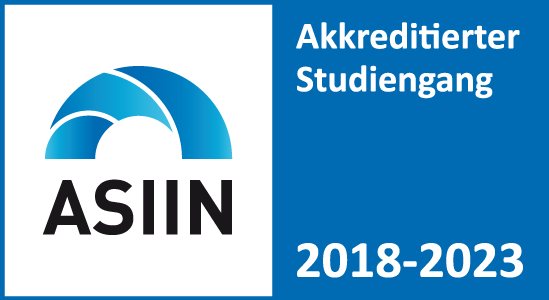The master programme Software Engineering qualifies for a career especially in: Software industry, software-centred areas in other industries, IT-focused service industry, financial and insurance industry, and telecommunication companies as well as in research institutions. Examples for areas of work particularly include: Software development (internal as well as external projects), software architecture, software quality assurance, preparing and conducting certifications of software, information management, project management, and strategic IT planning. Possible freelancing jobs include independent software development, technology consulting, and training. The graduates are prepared to carry out responsible functions in science and industry, in which they work creatively and in which they can contribute decisively to future innovations, both as technology expert and decision maker.
Technical competencies
To provide the technical and scientific teaching, the programme bundles the Software Engineering competence of the three large universities of greater Munich. The programme imparts in-depth, practice- and application-oriented knowledge in the central topics of Software Engineering and closely related areas. After successfully graduating graduates can evaluate software processes, requirements engineering methods, design and architectural principles, validation methods and techniques and can create technical solutions in analysis, design, implementation, and validation of software-intensive systems. They understand and can evaluate user interface, database and distribution paradigms. They know and can apply state of the art mathematical specification formalisms for software systems.
For full details of the program structure and the courses see Curriculum.
Soft skills
Complementing the technological competencies, the programme imparts: the ability to abstract and analyse; systematic and structured working; methodological competence; customer orientation; quality awareness; entrepreneurship and furthermore social and communicative skills relevant to Software Engineering and supporting the personal development of the students: Graduates acquire practical knowledge in presentation techniques, teamwork and people management, leadership, moderation techniques, and intercultural competence.
Upon graduating, each student has methodically applied Software Engineering techniques in an obligatory internship in industry. By a deliberate choice of integrated projects and interdisciplinary courses the program asks its students to take on societal responsibility and supports their personal development. Through invited talks and lectures, each student has gained further insights into current trends and challenges in industry and academia.
For details of the soft skill courses see Soft Skills.
Mentoring
Highest value is put on an individual and intensive support of the students in the context of the elite program.
During the study in the elite program each student will be supported by a mentor from science or industry. This mentor consults the student and supports him in all ranges of the program. This covers the planning of the study, the choice of courses, internships and industrial projects as well as a stay abroad and support with the planning of the later career.
Mentors are leading decision makers of the affiliated industrial partners as well as the professors of the elite program.





